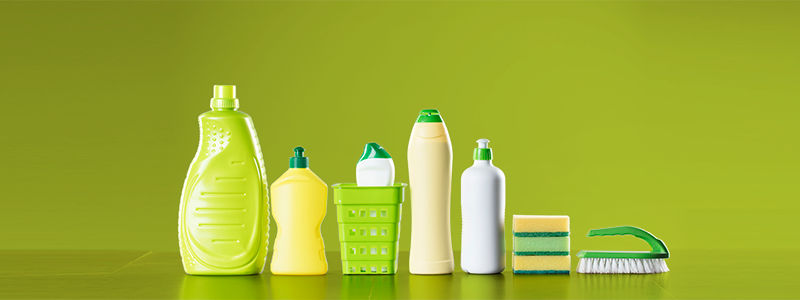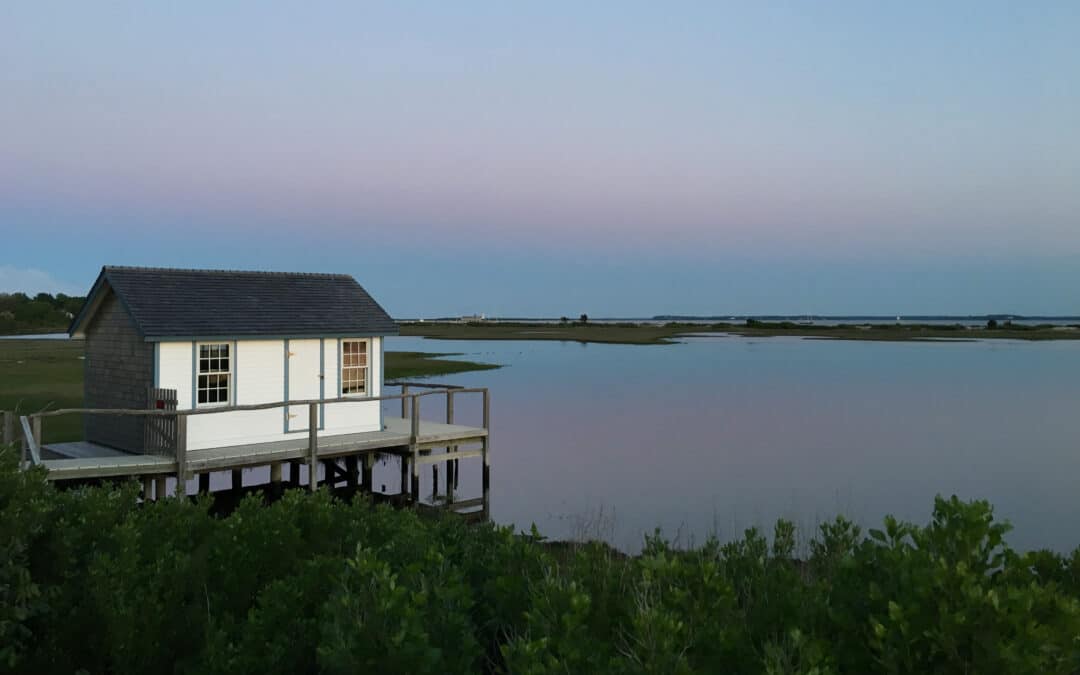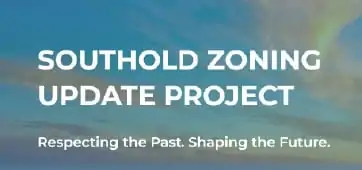A Letter from the President
In pursuit of our mission to inform you about issues that are relevant to our community, this summer newsletter touches on the topics of Emergency Preparedness, Best Practices for Protecting Water Resources, and upcoming Town Board discussions on Short Term Rental Code changes and a Community Housing Plan.
Increasingly, homes are being used exclusively for short-term rentals. Houses that are turned into Airbnbs are not available for year-round homeowners or renters, exacerbating the problem of the lack of affordable or even market rate year-round rental housing. The existing short-term rental code has been difficult to enforce, and the Town Board is considering some changes to the code that will help with enforcement.
The Town Board is also going to be discussing a Community Housing Plan at their work session on August 15th. This plan, currently in draft form, is a comprehensive review of affordable housing in Southold Town. It includes recommendations for managing and spending the new community housing fund as well as ways to create new housing opportunities in Southold. There is no easy fix for the lack of affordable housing, but Orient needs to think about how we could increase housing options for people who want to live here. Some food for thought: almost any home can be converted to a two-family house, and as a special exception, accessory buildings can be converted to accessory apartments for the use of a family member or someone with a qualifying income.
Our involvement with the Orient Water Study, and the coincident discovery of high levels of PFAS in some wells in Orient Village, have increased our awareness of the fragility of our water supply. There are things that we can all do to help sustain the precious resource of clean water. It is much harder to clean up contamination than to avoid it in the first place. We have compiled some resources for “Best Practices” that will help you do your part.
We wanted to share with you some pointers from a group of Orient citizens who have formed an Orient Emergency Management Committee. Climate change has brought increasingly intense fires and storms around the world, and we need to be prepared for such events. The North Fork Civics is also thinking about climate change, and several Orient Association members are involved in a committee that is looking at developing an analysis of coastal resilience in Southold Town.
The Orient Association is hosting some events for the Fall. We don’t have a date yet, but we are hoping to have Mary Anne Taylor return to talk more about the Orient Water Study. As you may know, Scott Russell is leaving his post as Town Supervisor at the end of the year. The North Fork Civics is organizing two forums for candidates for the office of Town Supervisor and for two Town Council seats. One of the forums will be held at Poquatuck Hall on Saturday, October 28th at 10:00.
Hope to hear from you soon about issues that are on your mind.
Important Dates:
- August 15th – Town Board Work Session- Community Housing Plan
- August 19th – Hazardous Waste Day!
- August 29th – Town Board Public Hearing on changes to Short Term Rental Laws
- TBD – Orient Water Study Report
- October 28th – Candidates Forum
Barbara Friedman
President, the Orient Association

Southold’s Community Housing Plan
At their August 15 work session, the Southold Town Board will once again be considering a proposed Community Housing Plan (hereafter “Plan”). This scheduled review is a follow-up of an initial presentation of the Plan on April 25. After a series of community meetings in June and July the Board will be reviewing the public comments at the work session and deciding whether to go forward to a public hearing on the current draft or to prepare amendments to the Plan prior to a public hearing.
Members of the Orient Association Board of Directors working in conjunction with the North Fork Civics Coalition have reviewed the Plan and have forwarded comments to the Town on two occasions.
The creation of this Plan follows a November 8, 2022 approval by Southold’s voters of a local law to establish a one-half percent (0.5%) tax on real estate transfers creating a Southold Town Community Housing Fund. One provision of this local law is that the Town must adopt a Community Housing Plan that identifies how and for what purposes this Fund can be used prior to any expenditure.
The current draft of the Plan (dated 4/21/2023) was prepared by the Community Housing Fund Advisory Board, Southold Town planning staff, and a consultant. While the details of the Plan are too numerous to recount here, the main goals of the Plan include:
- Increasing the inventory of community housing
- Maintaining and supporting existing community housing
- Increasing home ownership opportunities
- Housing education and counseling services
It is important to note that the definition of community housing is fairly broad. It can include residential units up to $1,200,000 in cost and eligible families of 3 or more people with up to $204,000 annual income.
The Plan’s key recommendations for expenditures that support the goals can be summarized as follows:
- Low interest loans for construction of new units (single and multiple) and accessory apartments
- Grants for maintenance of existing community housing
- Low-interest loans or grants to first-time homebuyers
- Interest-free loans to first time homebuyers who a U.S. active military, veterans, health care workers, or emergency service volunteers
- Grants to organizations that provide community housing counseling within the Town of Southold.
Community members are encouraged to explore the Town website to review the complete draft of the Community Housing Plan.
Town website link: southoldtownny.gov/1943/community-housing-fund

Short Term Rental Code
The Southold Town Board is scheduled to hold public hearings on August 29th about proposed changes to the rules regarding short term rentals. Since 2015, it has been illegal to rent a home for less than 14 days in the Town of Southold, yet there are over 700 properties currently listed on Airbnb and many are available for less than 14 days. At a recent party two couples from out of town reported that they had rented Airbnbs in Orient for just ONE NIGHT. It’s nice to have visiting friends staying in a house nearby– it is also nice to know your neighbors and not have a perpetual parade of strangers next door.
The Town has found it difficult to enforce the current code, and short-term rentals are the number one area for complaints to Code Enforcement. Currently, Chapter 207, Rental Permits, requires that all rentals have a rental permit. This ensures that the property has basic safety features like smoke and carbon monoxide detectors, handrails, and proper egress. The new Code provisions would require that rental permit numbers be included in all advertising and promotional material. This would allow enforcement to identify properties that are illegally renting for shorter terms. Fines for illegal rentals would be drastically increased under the new rules. First offense fines, which are now set at $500-$5,000, would be increased to $3,000-$10,000 or the published 14-day rental rate, whichever is higher. Second offense fines would change from the current $1,000-$10,000 to a new rate of $5,000 to $20,000 or the published 14-day rental rate, whichever is higher.
Proposed changes to the Chapter 207 and Code Chapter 280, Zoning, also involve the “transient rental of amenities.” The website “Swimply,” which launched in 2018, currently lists three swimming pools in Southold that are for rent on an hourly basis. The new code amendment would prohibit “the rental of any parcel amenity, accessory use or yard area, including pools, barns (except for storage only purposes), sports courts, or waterway access not in conjunction with a permitted rental occupancy.”
Proposed changes to Chapter 207- Rental Permits
http://southoldtown.iqm2.com/citizens/Detail_LegalNotice.aspx?ID=2250
Proposed changes to Chapter 280 – Zoning
http://southoldtown.iqm2.com/citizens/Detail_LegalNotice.aspx?ID=2251
If the short-term rental code is an issue that is important to you, we urge you to attend the public hearing on August 29th in person or via Zoom.

Emergency Preparedness
With Hurricane season already upon us, the Orient Emergency Management Committee continues to encourage Orient residents to prepare for storms that may lead to long term power outages. Prepare now to mitigate some of the potential difficulties. Last month a checklist on Hurricane Season Preparation was distributed by Orient Association
- Make a Communication Plan: Talk to your family and make a disaster plan with your household members to prepare what to do, how to find each other and how to communicate in an emergency; especially if evacuation is required. Make sure to plan for everybody’s needs including seniors, people with disabilities, children and pets.
- Emergency Supply Kit: Create a kit of essential supplies of food, water, medication, important documents, and chargers whether you stay or evacuate your home.
For additional information go to: https://www.ready.gov/plan - Stay Informed: Local radio, TV or NOAA weather radio stations are good sources. Know what actions to take to protect yourself during disasters. Learn first aid and CPR to be able to help your family and others.
- Secure your home: If you are a homeowner, make sure your home is properly insured. Flood and wind damage are not covered in a basic homeowner’s policy.
Since most Orient homes rely on wells, powering up a portable generator can help a household get back on its feet. Even a small portable generator can run a few lights, refrigerator, the well pump and chargers; however, don’t overlook the basic safety measures in using such equipment. Here is a link to Safety Tips and Guidelines for Portable Generators for you to keep handy in case of power outages and the need to utilize a generator. Plan now to stay safe.

Best Practices to Protect Water Resources
Orient is surrounded by water and has only one, thin freshwater aquifer from which all of our water is drawn. To preserve the health of our ground water and the surrounding water bodies, we need to be mindful of the fact that what we put down our drains or onto our lawns ends up first in our drinking water and eventually in the bay or Long Island Sound. Several community members have asked about best practices, so here are some helpful resources for maintaining a healthier home and hamlet:
What can you do?
Use safer personal care and cleaning products:
The cleaning products you use inside can impact your environment. Careful selections of non-toxic products can both protect the aquifer, source of your drinking water, as well as your health by improving indoor air quality.
- Choose cleansers that are certified by Green Seal or Ecologo, free of fragrance and free of triclosan and quaternary ammonium compounds. Avoid products with ammonia and chlorine bleach.
- Avoid scented products, including laundry aids.
Find recommended personal care and other household products. The environmental working group and EPA have rated thousands of products:
- Environmental Working Group https://www.ewg.org/guides/cleaners/
- EPA https://www.epa.gov/saferchoice/products
- The Spruce https://www.thespruce.com/the-best-septic-safe-household-cleaning-products-4175069
Properly dispose of pharmaceuticals and hazardous products:
Never dispose of pharmaceuticals or hazardous waste materials by flushing them down the toilet or pouring them down the drain. Don’t be fooled by the appearance of storm water drains on the street– these are not sewered drains. There are no sewers in Southold Town except in Greenport Village. Your home does not have sewers that treat your wastewater! We all have septic tanks or cesspools, which do little to no filtration of harmful contaminants.
Narcotics can be disposed of at the Police Department, and most other pharmaceuticals can be put in the trash or taken to the ELIH pharmacy for disposal.
Southold Transfer Station (aka “the dump”) accepts hazardous waste on hazardous waste days four times per year. On those days, they will accept oil-based paint, paint thinner, toilet cleaner, pesticides, herbicides, carpet cleaner, kerosene, motor oil, and other hazardous substances. Proof of residency may be requested, but permits are not required.
THE NEXT HAZARDOUS WASTE DAY IS AUGUST 19th from 9:00-3:00.
For a full list of accepted hazardous materials visit
http://www.southoldtownny.gov/149/Hazardous-Waste
Maintain or update your wastewater system
Maintain your cesspool or septic system—or, better yet, consider installing an advanced septic system to reduce the nitrogen released by your wastewater disposal system. Find out more about these systems here: https://reclaimourwater.info/Septic-Improvement-Program
Pick up after your pet
Pet waste contains harmful bacteria and nutrients and other contaminants that could reach the water. While your dog may only contribute a small amount of waste-it adds up.
Avoid PFAS-containing products and get your water tested
Orient’s aquifer has pockets of high levels of Per-and Polyfluoroalkyl Substances (PFAS) chemicals. While the major sources are being investigated by NYSDEC, every household is likely to contribute to these “forever” chemicals, which can cause serious health effects. Fabrics with stain/waterproof repellent coatings, such as Teflon, Scotchgard, Stainmaster, Polartec, or Gore-Tex will likely contain PFAS chemicals. They are found on pan coatings, fast-food wrappers, pizza boxes, some watch bands, and even Oral-B glide floss. Choose personal care products without “PTFE” or “FLUORO” Ingredients. Check “performance” fabric specifications when purchasing furniture.
The Suffolk County Department Health Services is still providing free PFAS testing within the Orient Village survey area and is now including PFAS testing for everyone in the $100 private well testing program. Call (631) 852-5810 for more information. Make sure you request that PFAS testing is included in your test.
Avoid products with 1,4-Dioxane
This emerging contaminant of concern can be found in many personal care and household cleaning products. Since it is a manufacturing byproduct in many of these products, it is not included in the list of ingredients. Read more about it in this recent Riverhead Local article:
https://riverheadlocal.com/2023/08/11/yale-researchers-seek-participants-for-study-of-14-dioxane-in-long-island-drinking-water/
Limit the use of fertilizer, herbicides, pesticides and fungicides
Remember that everything you put on your lawn can seep into the aquifer. Reduce or, better yet, eliminate fertilizer use. Don’t apply fertilizers when rain is forecast, as it will likely just leach into the aquifer or wash away as stormwater run-off. Leaving at least 3 inches of grass when mowing will help roots to remain strong. Grass clippings left on the lawn can restore nitrogen naturally. Suffolk County has a ban on fertilizer use between November 1 and April 1. See the Suffolk County’s website for best practices:
http://healthylawns.suffolkcountyny.gov.
This brochure from the Peconic Estuary Partnership is a useful resource for learning alternatives to pesticide use: Pesticides Near the Bay – Peconic Estuary Partnership. If you feel that you MUST have your lawn sprayed for ticks or other pests, never allow the application of spray just before a heavy rain or under windy conditions.
Limit household water consumption
With only one thin aquifer to draw from, water is a precious resource. Our aquifer is very vulnerable to saltwater intrusion from rising sea levels, flooding and/or excessive pumping. To reduce use, consider installing EPA Watersense fixtures.
https://www.epa.gov/watersense
Limit irrigation
While much of the water we use indoors returns to the aquifer as wastewater, much of the water used outdoors is lost to evapotranspiration. On the East End of Long Island, we use more water per household than the national average. One of the biggest culprits is lawn irrigation. Too much water can actually be detrimental to the health of your lawn. Lawns only need about one inch of water a week, which rain usually provides. Also, a brown lawn will recover. Ideally irrigation should only be used to establish plants – one year for grass, two for bushes, and three for trees. See the County’s guidance on best practices for lawn watering:
Healthy Lawns, Clean Water (suffolkcountyny.gov)
https://healthylawns.suffolkcountyny.gov/lawn/watering.htm
You might also consider reducing the turf area and planting native species or installing a rain garden. A rain garden is a wonderful way to capture run-off from your home, diverting it to a pleasurable amenity. An excellent example has been installed at the North Fork Audubon Society, Roy Latham Nature Center at 65275 County Road 48 in Greenport. For more information on which plants do well in a rain garden, see Cornell Cooperative Extension’s guidance.
Recent Happenings

Orient Water Forum – Saturday, October 25th Poquatuck Hall 9:00am-12:30 pm

Southold Zoning Update Project – July 29, 2025 3-4pm


